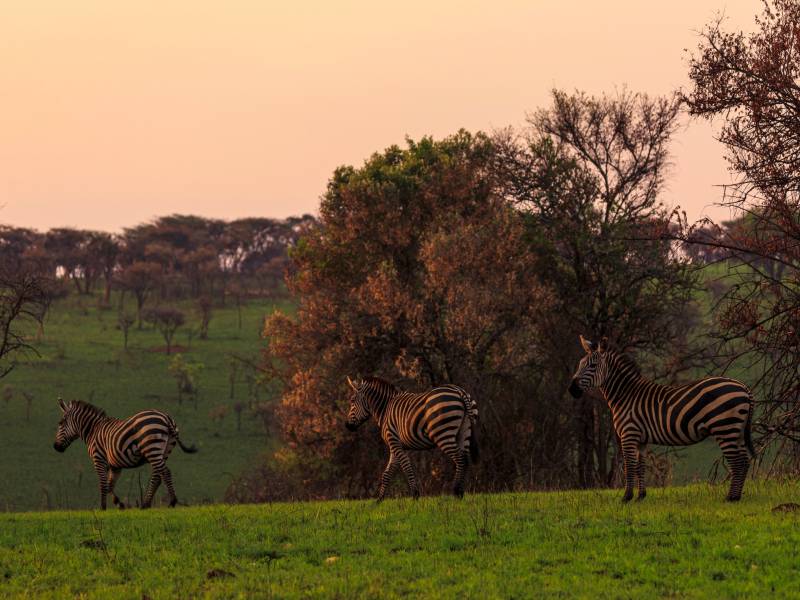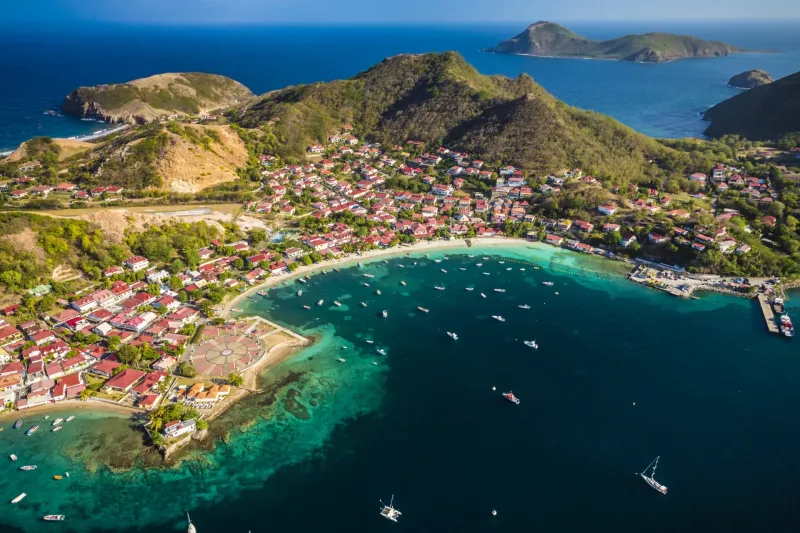The best new safaris offer expert insight into conservation projects that aim to protect Africa’s habitats.
The bamboo and dense rainforest that covers five of the volcanoes of the Virunga Mountains in Volcanoes National Park, Rwanda form one of the last remaining refuges for mountain gorillas.
Gishwati-Mukura National Park, a rewilding project near Lake Kivu, is Rwanda’s newest national park and biosphere reserve. Rwanda lost thousands of acres of precious rainforest to unsustainable farming in the 1980s and 1990s, due to inadequate environmental protection, population growth and the 1994 genocide, which turned a shocking number of people into desperate refugees. By the early 2000s, less than 1% of Gishwati Forest — part of the national park — remained.
Environmental protection expert Madeleine Nyiratuza was determined to turn the situation around. Having conducted her Master’s research on ways to conserve Gishwati, in 2012 she set up community-based conservation NGO the Forest of Hope Association (FHA). She felt that to save Gishwati, solutions had to be found to problems such as villagers letting their cattle in to graze, or losing their maize crops to hungry chimpanzees. “I reasoned that the communities living around the forest should have a sense of ownership of it and responsibility for its management,” she says.
To achieve this, the FHA had first to recruit ‘eco-guards’, create ‘eco-clubs’ at local schools and start replanting trees. Official protection followed: Gishwati-Mukura National Park was created in 2015, and it was declared a UNESCO Biosphere Reserve in 2020. The long-term goal was always to establish it as a centre of excellence for community-managed forest ecotourism, and with the Forest of Hope Guest House & Camp Site open to visitors since December 2020, this plan is taking shape. Compensating local communities for losing access to the forest has been part of the process, with the Rwandan government investing over £210,000 on improving livelihoods in 2021.
Excitingly, it’s also home to a thriving community of wild chimpanzees. Forest safaris can play a key role in protecting rare habitats and helping to prevent biodiversity loss, landscape erosion and drought. In Gishwati-Mukura, launching activities such as hiking, birdwatching, chimp-tracking and golden monkey-watching will be a crucial step. Meanwhile, chimps and trees have increased in number, and ecotourism specialist Wilderness Safaris plans to build the park’s first luxury lodge.
Top three gorilla-watching trips
Best for spotting Western lowland gorillas
Odzala-Kokoua National Park and the nearby Ndzehi Concession (both in the Republic of the Congo) are home to the world’s highest concentration of western lowland gorillas — smaller than their mountain-dwelling cousins.
Best for spotting mountain gorillas
Opened in 2019, One&Only Gorilla’s Nest, in Volcanoes National Park, is one of Rwanda’s latest ultraluxurious forest lodges. Book two day permits to fully appreciate the experience. Afterwards, unwind with spa treatments scented with local herbs, roses and coffee.
Best for contributing to gorilla conservation
The Ellen DeGeneres Campus of the Dian Fossey Gorilla Fund opened in February 2022. The talkshow host and her wife Portia de Rossia were major funders of the mountain gorilla research and education centre. Book a tour of the research labs, browse exhibitions, and refuel at Gorilla Café.




